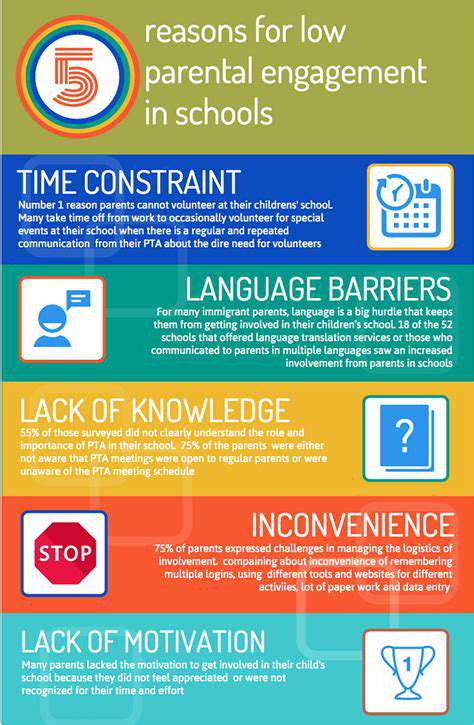How to Foster Emotional Resilience in Kids
Encouraging Positive Relationships and Social Connections
Building Trust and Rapport
Trust is the cornerstone of any positive relationship, be it with a friend, family member, or colleague. Establishing trust takes time and consistent effort. Open and honest communication, demonstrating reliability, and valuing the other person's perspective are key components. Active listening, showing empathy, and respecting personal boundaries are essential for fostering a safe and comfortable space for genuine connection. Building rapport involves finding common ground, engaging in shared interests, and demonstrating genuine interest in the other person's life and experiences. This process of getting to know each other on a deeper level lays the foundation for stronger bonds.
Consistency in actions and words is crucial. If you say you'll do something, follow through. If you make a promise, keep it. This consistency builds a sense of reliability and predictability, which are fundamental to developing trust and rapport. Furthermore, actively seeking opportunities to connect on a deeper level, beyond surface-level interactions, is critical. Engage in meaningful conversations, ask open-ended questions, and show genuine interest in what the other person has to say.
Cultivating Open and Honest Communication
Open and honest communication is vital for maintaining positive relationships. It involves expressing thoughts and feelings openly and respectfully, while also actively listening to and understanding the perspectives of others. This includes being willing to share your vulnerabilities, acknowledging your mistakes, and apologizing when necessary. It also involves creating a safe space where others feel comfortable doing the same.
Active listening is a crucial element in effective communication. Pay attention not just to the words being said but also to the nonverbal cues, like body language and tone of voice. Try to understand the speaker's perspective and feelings, even if you don't agree with them. Ask clarifying questions to ensure you fully grasp the message being conveyed. This process of active listening fosters empathy and strengthens the connection between individuals.
Managing Conflict Constructively
Conflict is inevitable in any relationship, but how you handle it significantly impacts the strength of the bond. Instead of avoiding conflict, view it as an opportunity for growth and understanding. When disagreements arise, approach them with a calm and respectful demeanor. Focus on understanding the other person's perspective, even if you don't agree with it. Express your own feelings and needs clearly and concisely, while actively listening to the other person's responses. Find common ground and work together to find solutions that address the concerns of all parties involved.
Nurturing Shared Experiences and Interests
Shared experiences and interests create lasting bonds and strengthen relationships. Actively seek opportunities to engage in activities that you and your loved ones enjoy. This could be anything from attending concerts or sporting events to trying new restaurants or exploring new hobbies together. Shared experiences create lasting memories and foster a deeper sense of connection.
These shared experiences don't have to be grand gestures. Simple activities, such as having dinner together, taking a walk in the park, or watching a movie, can strengthen connections and create positive memories. By actively engaging in activities that you enjoy together, you create opportunities to connect on a deeper level and build stronger bonds.
The Importance of Empathy and Support
Empathy and support are cornerstones of healthy relationships. Empathy involves understanding and sharing the feelings of another person. It involves putting yourself in their shoes and trying to see the world from their perspective. This ability to understand and share the emotional experiences of others fosters a deeper sense of connection and allows for more meaningful interactions.
Offering support during challenging times is equally vital. Whether it's a listening ear, a helping hand, or a comforting word, offering support demonstrates care and concern. Support can take many forms, from practical assistance to emotional encouragement, and it strengthens the bonds between individuals and creates a sense of belonging and trust.
Read more about How to Foster Emotional Resilience in Kids
Hot Recommendations
- Efficient Study Habits for Middle Schoolers
- How to Foster Cooperation Between Co Parents
- Best Education Techniques for Children with Autism
- Supporting Special Needs Kids: Strategies for Education and Companionship
- How Can I Improve Early Childhood Learning at Home?
- How to Navigate Different Parenting Styles Together
- How to Create Consistency with Positive Discipline Techniques
- Step by Step Guide to Positive Behavior Management
- Tips for Encouraging Social Skills in Children with Autism
- How to Support Special Needs Children at Home











